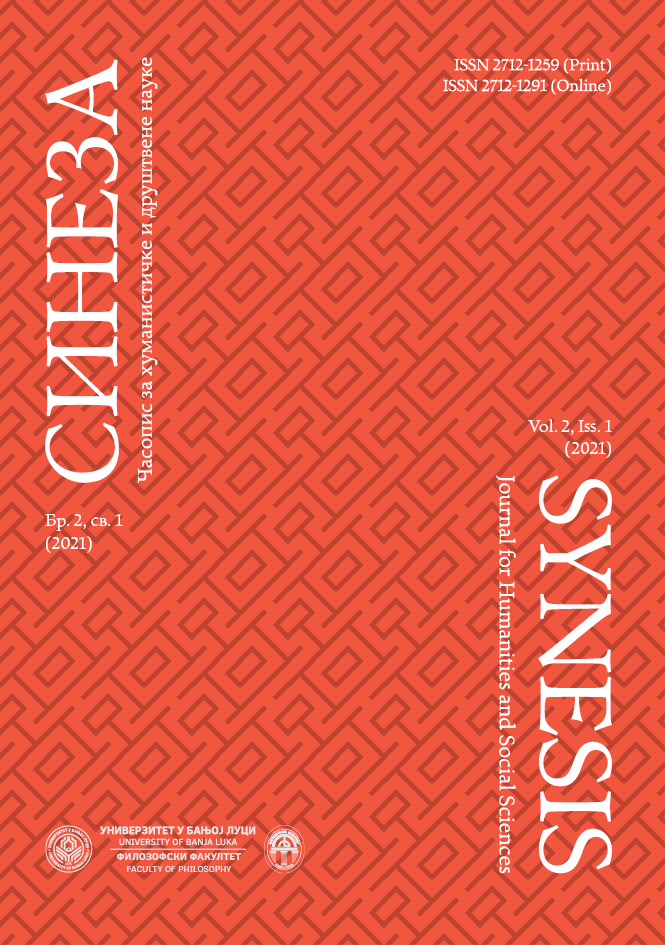Nekoliko aspekata Fihteovog poimanja prirode i uloge transcendentalne apercepcije: Sučeljavanje sa Hegelom
Several aspects of Fichte’s understanding of nature and the role of transcendental apperception: Confrontation with Hegel
Author(s): Saša LaketaSubject(s): Epistemology, Special Branches of Philosophy, German Idealism, Philosophy of Mind
Published by: Filozofski fakultet, Univerzitet u Banjoj Luci
Keywords: apperception; transcendental self; idealism; cognition; dualism;
Summary/Abstract: Contrary to Hegel who, starting with the first sentences of the Introduction to the Phenomenology of Spirit, limits Kant’s philosophy to the predicates of critical skepticism and egological psychologism, Fichte tries to find philosophical arguments that would free Kant’s transcendental system from such limitations. Hegel wants to demonstrate an immanent critique of Kant’s criticism. Although Kant’s philosophy arises from the need for a clear and final definition of the foundations and limits of the use of pure theoretical mind - from disagreement with the dogmatism and relativism of traditional metaphysical endeavors – his transcendental criticism, in its essentially dualistic intentions, hides one fundamental - Hegel would say reckless - dogmatic and skeptical nature. Hegel states that the absolute identity of subject and object, lying hidden within Kant’s transcendental idealism, has been transformed into a formal, external, identity, so that transcendental idealism has passed into formal and, in fact, psychological, idealism. Hegel claims that Kant did the same mistakes that he had found in Hume’s philosophy. One of the basic aporias of Kant’s philosophy, the question of the possibility of synthetic judgments a priori, was limited to subjective and external/formal meaning, where the possibility of mindful understanding turned out to be impossible. Kant’s idea of productive transcendental imagination, which should be understood as ‘the mind itself’, had been presented almost in the ordinary form of psychological, but a priori, powers.Fichte’s effort to understand and demonstrate Kant’s critique in a way that is free from skeptical and psychological remnants is one of the faces of his understanding of the spirit, and not the letter of Kant’s philosophy, and one of the most important features of such an approach lies in the peculiarities of Fichte’s understanding of nature and the role of transcendental apperception. In Fichte’s transcendental system, the transcendental self is expressed as a place of possibility of any given content of consciousness, including individual, specific, contents of perception. Dualism is almost completely lost from Fichte’s transcendental conception, all by rejecting the formalistic remnants of Kant’s critical position. In this sense, among other things, Fichte’s transcendentalism, unlike Kant’s criticism, should be understood as transcendental idealism.In this paper, we will compare certain elements of Hegel’s and Fichte’s approach to Kant’s philosophy and point to several important aspects of Fichte’s (non)egological understanding of transcendental apperception, all for the purpose of more accurately measuring the distance between Fichte’s and Hegel’s idealistic position. In particular, we will argue that Fichte’s transcendental idealism is closer to Hegel’s absolute idealism as much as Fichte’s conception of the nature of the transcendental self is distanced from egological conceptions in epistemology.
Journal: Sineza
- Issue Year: 2/2021
- Issue No: 1
- Page Range: 73-84
- Page Count: 12
- Language: Serbian

